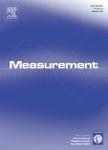版权所有:内蒙古大学图书馆 技术提供:维普资讯• 智图
内蒙古自治区呼和浩特市赛罕区大学西街235号 邮编: 010021

作者机构:Tecnol Nacl Mexico Celaya Celaya 38010 Mexico Catedras CONACYT Mexico City DF Mexico Univ Autonoma Benito Juarez Oaxaca Escuela Sistemas Biol & Innovac Tecnol Oaxaca 68120 Oaxaca Mexico Univ Guanajuato Dept Elect Salamanca 36885 Mexico
出 版 物:《MEASUREMENT》 (测量)
年 卷 期:2021年第182卷
页 面:109757-109757页
核心收录:
学科分类:08[工学] 080401[工学-精密仪器及机械] 0804[工学-仪器科学与技术] 081102[工学-检测技术与自动化装置] 0811[工学-控制科学与工程]
基 金:TecNM, CONACyT CONACyT [FC20161961]
主 题:FPGA-based Implementation Fuzzy Systems GPS Data Correction
摘 要:The response speed of the intelligent systems embedded in an autonomous vehicle is crucial for its correct operation and reduction of the risks on the road derived from autonomous driving. For that reason, it is necessary to optimize the algorithms that process the data from the sensors;with that aim the Field-Programmable Gate Arrays (FPGAs) offer the possibility of parallelizing the tasks to be carried out by mentioned systems, accelerating their response and improving their performance. In this regard, this paper introduces a fuzzy absolute position correction system, which corrects the latitude and longitude data registered from a GPS Pmod sensor and its implementation on a FPGA to speed up the correction results. A necessary comparison of the algorithm execution time on different platforms such as: A Raspberry pi 4 model B, a personal computer (PC) with Ubuntu 18.04.4 64bit and the FPGA model, was performed to validate the results and the effectiveness of the implementation. The correction system was validated in software and hardware on 4 different routes, each of them with a large number of samples. The results were highly similar in the three platforms;however, the FPGA-based implementation offers a speed up of 40000x compared to software-based implementations.